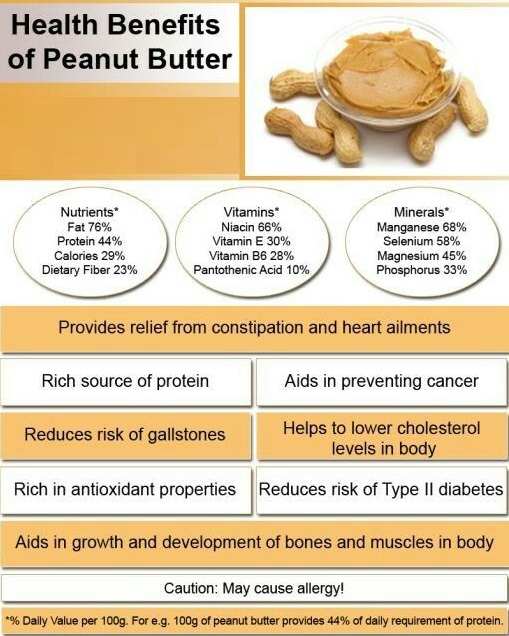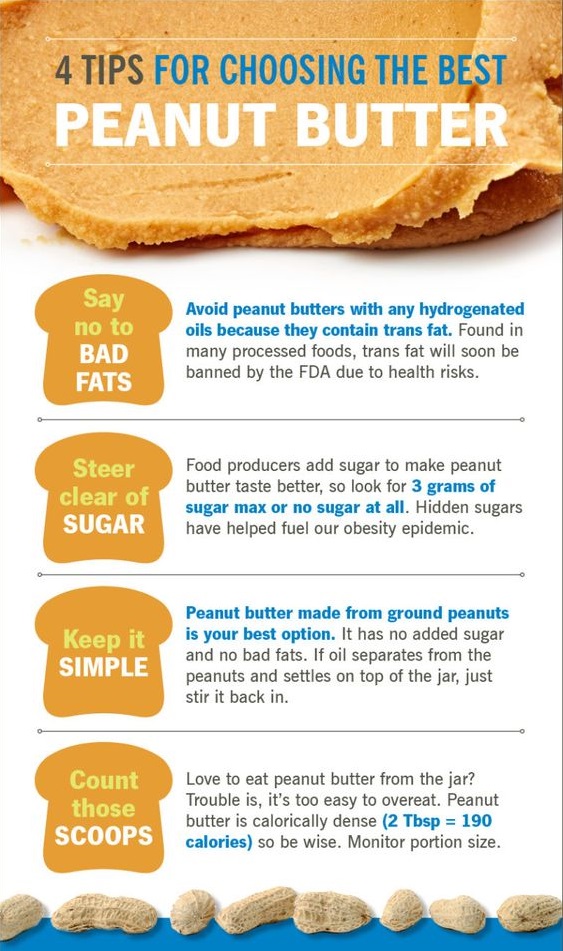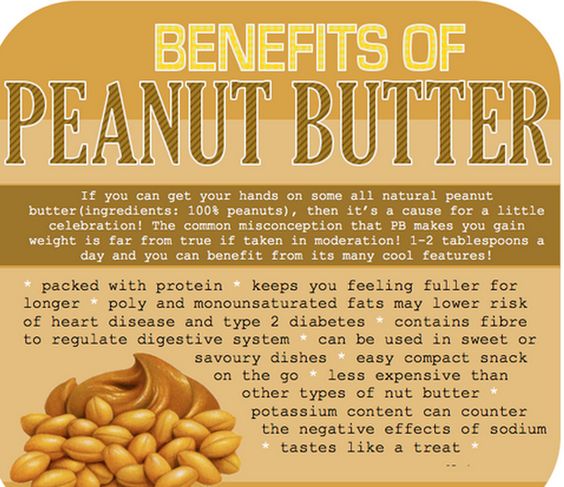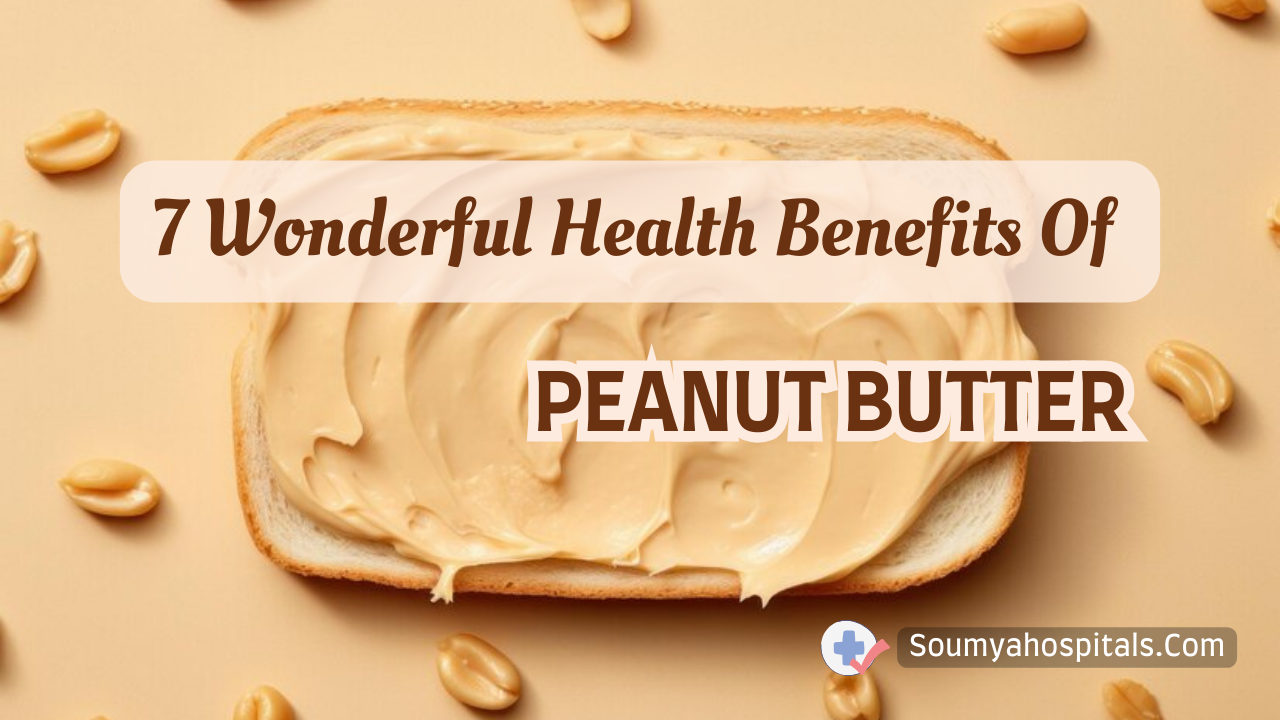We all agree that peanut butter is delicious. But you hesitate before indulging in it because peanut butter is calorific and you fear you could gain weight by giving in to the temptation, don’t you? While it is true that peanut butter has calories, that is not good enough reason to not eat it because a) everyone needs calories and b) peanut butter is the easiest, cheapest source of various kinds of nutrition. Let’s look at the health benefits of peanut butter rather closely.
Also Check: Side Effects Of Eating Too Many Peanuts
1. All In All A Functional Food
Need to kickstart the day the healthiest way possible? Begin your day with a spoonful of peanut butter spread on toast. Peanut butter is considered a functional food which means it has plenty of health-giving components. Peanut contains many functional compounds like proteins, fibers, polyphenols, antioxidants, vitamins, and minerals. Adding them to your regular processed foods would make your meals healthy. Peanuts are an excellent source of compounds like resveratrol, phenolic acids, flavonoids and phytosterols that block the absorption of cholesterol from the diet. It is also a good source of bioactive compounds like Co-enzyme Q10 and 20 amino acids with the highest amount of arginine, an amino acid used for the biosynthesis of proteins, with disease preventive properties.
Studies have also shown that processing methods like roasting and boiling of peanuts only increase the concentration of these bioactive compounds. Good enough reason to indulge in peanut butter every once in a while? We surely think so.

2. Heart Healthy
Many studies have repeatedly proved this: Peanuts can keep your heart healthy. It is widely recognized as a power food that can fight many cardiovascular diseases. In an in-depth study on more than 6000 women with type 2 diabetes over a period of 12 years, it was found that consuming nuts and peanut butter five or more days a week reduced the risk of developing heart disease or strokes in those women who were free from heart disease at the start of the study.
But what gives these legumes heart-healthy properties? Certainly the good fats in them.
According to the American peanut council, peanut has about 50 percent monounsaturated fatty acids (MUFAs), 33 percent Paraformaldehyde (PFA) and 14 percent saturated fatty acids which is a heart-friendly combination of fatty acids. What more? The amount of trans fat in peanut butter with 2 percent stabilizer is over 100 times less than what is needed to reach the 0 g trans fat cut-off on food labels. Peanut products including peanut butter are found to be more beneficial to heart health than even low-fat diets, thanks mainly to the high monounsaturated fat in them that can lower the total body cholesterol by 11 percent and bad LDL cholesterol by 14 percent.
3. Healthy Protein Source
Here’s some good news for vegetarians and vegans. Peanuts are a healthy source of protein. Peanut butter became a much sought after protein source during World War II when meat sources of protein were scarce. Since it is a plant source of protein, peanut has an added advantage of also having fiber and unique bioactives, unlike animal protein. The amino acids in it, especially arginine, can keep the blood pressure in check by expanding blood vessels. Protein, as you know, is a macronutrient and is needed to build bones, muscles, cartilage, skin, and blood.

4. Diabetes Superfood
According to the Food and Drug Administration, peanuts are a good source of fiber. It also has carbohydrates. Carbohydrates that contain fiber or starch have a less pronounced effect on blood sugar. This could explain why peanuts have a low glycemic index (GI) and glycemic load (GL) which are 14 and one respectively on a 100–point scale. Studies have also shown that when peanuts or peanut butter are added to a high glycemic load meal, like a bagel and a doughnut, they kept the blood sugar stabilized. It is no surprise then that the American Diabetes Association ranks peanuts and other nuts as diabetes superfoods.
5. Storehouse Of Essential Vitamins
Peanut is also a good source of essential vitamins like B vitamins and minerals. Among the 13 elements considered essential in human nutrition, four of them are present significantly in peanuts and seven others are found in nutritionally significant quantities. The vitamins in peanuts include niacin, folate, pantothenic acid, thiamine, riboflavin, choline, vitamin B6 and E. The presence of folate in it makes it a healthy diet for pregnant mothers and infants. These vitamins help in the healthy functioning of various organs and also in metabolism and immunity.
6. Maintains Blood Pressure Levels
Peanuts stand out as a good source of potassium, a mineral that does a whole lot of work in the body. Significantly, it helps in maintaining the blood pressure levels. While potassium has many sources, the potassium that you get from peanuts is special because it comes in a high protein and healthy fats and fiber package. This helps in managing blood pressure levels and avoiding health complications like stroke.
A word of caution though. If you have any renal complaints, you might want to check with your doctor on the amount of peanut butter that you can have. Kidney diseases can result in the accumulation of potassium in the body which can be dangerous.

7. For Weight Loss
Perhaps a very fascinating thing about peanuts is that despite all the calories they possess, a diet rich in peanuts can help you maintain weight, lose some even. How is that even possible? Research has shown that eating peanuts and peanut butter makes you feel fuller for a longer time. It also has the potential to curb hunger than any other food perhaps because it stimulates a certain hormone that helps one feel satiated. Various studies have also shown that incorporating peanuts in the diet does not lead to weight gain. Some studies have even shown that peanuts can, in fact, contribute to weight loss. How else would you explain lower body mass index among peanut eaters?
With all these health benefits and more, do we have enough reasons to love peanut butter a lot more? We certainly think so.
